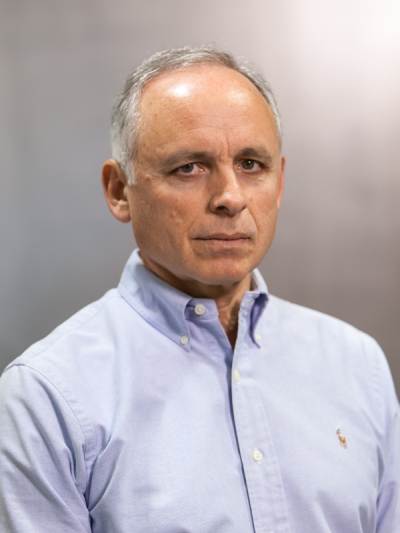Evangelos Eleftheriou, IBM Fellow, IBM Research – Zurich, to speak at ECE NTUA on Thursday April 26, 2018, at 12.00

Lecture Title: Phase-change-memory devices for non-von Neumann computing
Abstract: The tremendous increase in data that is being generated could significantly improve our understanding of today's incredibly complex economies and societies. It ushers in a new era of computing, namely, the cognitive era, in which data is considered a new natural resource. However, cognitive computers based on the classical von-Neumann computing architecture pose considerable challenges in terms of area and power consumption. This has triggered research efforts to unravel and understand the highly efficient computational paradigm of the human brain, with the aim of creating brain-inspired artificial cognitive systems. Most recently, post-silicon nanoelectronic devices with memristive properties are also finding applications beyond the realm of memory. It is becoming increasingly clear that for application areas such as cognitive computing, we need to transition to computing architectures in which memory and logic coexist in some form. Brain-inspired neuromorphic computing and the fascinating new area of in-memory computing (or computational memory) are two key non-von Neumann approaches being researched.
My presentation will focus primarily on in-memory computing: a fascinating new non-von Neumann approach, where the physics of nanoscale memory devices as well as the organization of PCM devices in cross-bar arrays are exploited to perform certain computational tasks within the memory unit. I will present large-scale experimental demonstrations using about one million PCM devices organized to perform high-level computational primitives, such as image compression and reconstruction, linear solvers, temporal correlation detection and deep learning training and inference. The results show that this co-existence of computation and storage at the nanometer scale could be the enabler for new ultra-dense, low-power, and massively parallel computing systems.
Short Bio: Evangelos Eleftheriou, a graduate of the Department of Electrical and Computer Engineering of the University of Patras, Greece, received his Ph.D. degree in Electrical Engineering from Carleton University, Ottawa, Canada, in 1985. In 1986, he joined the IBM Research – Zurich laboratory in Rüschlikon, Switzerland, as a Research Staff Member. Since 1998, he has held various management positions and is currently responsible for the neuromorphic computing activities of IBM Research – Zurich.
His research interests include signal processing, solid-state memories and storage, and storage for big data. More recently he has expanded his interests to emerging computing paradigms such as neuromorphic and in-memory computing. He has authored or coauthored over 200 publications, and holds over 160 patents (granted and pending applications).
In 2002, he became a Fellow of the IEEE. He was co-recipient of the 2003 IEEE Communications Society Leonard G. Abraham Prize Paper Award. He was also co-recipient of the 2005 Technology Award of the Eduard Rhein Foundation. In 2005, he was appointed an IBM Fellow for his pioneering work in recording and communications techniques, which established new standards of performance in hard disk drive technology. The same year he was also inducted into the IBM Academy of Technology. In 2009, he was co-recipient of the IEEE CSS Control Systems Technology Award and of the IEEE Transactions on Control Systems Technology Outstanding Paper Award. In 2016, he received an honoris causa professorship from the University of Patras, Greece. In 2018, he was inducted into the US National Academy of Engineering as Foreign Member.
Location: Central Library of NTUA - Multimedia Amphitheatre
Note: The lecture is held to meet the needs of the graduate course "Advanced Data Science and Data Analytics"
